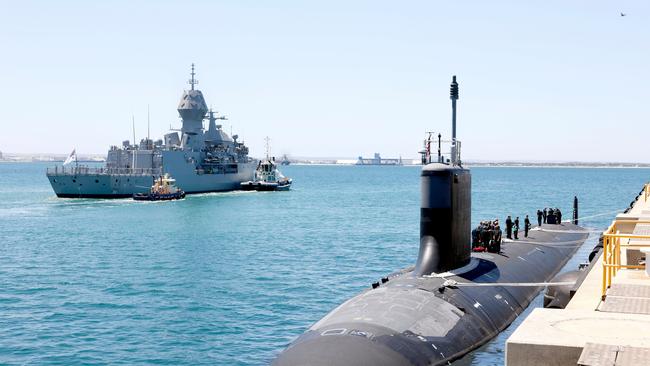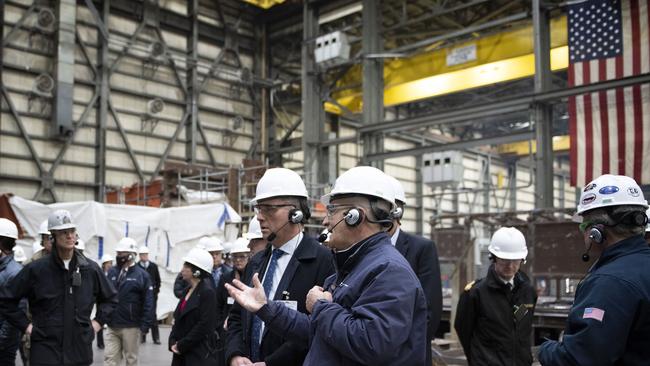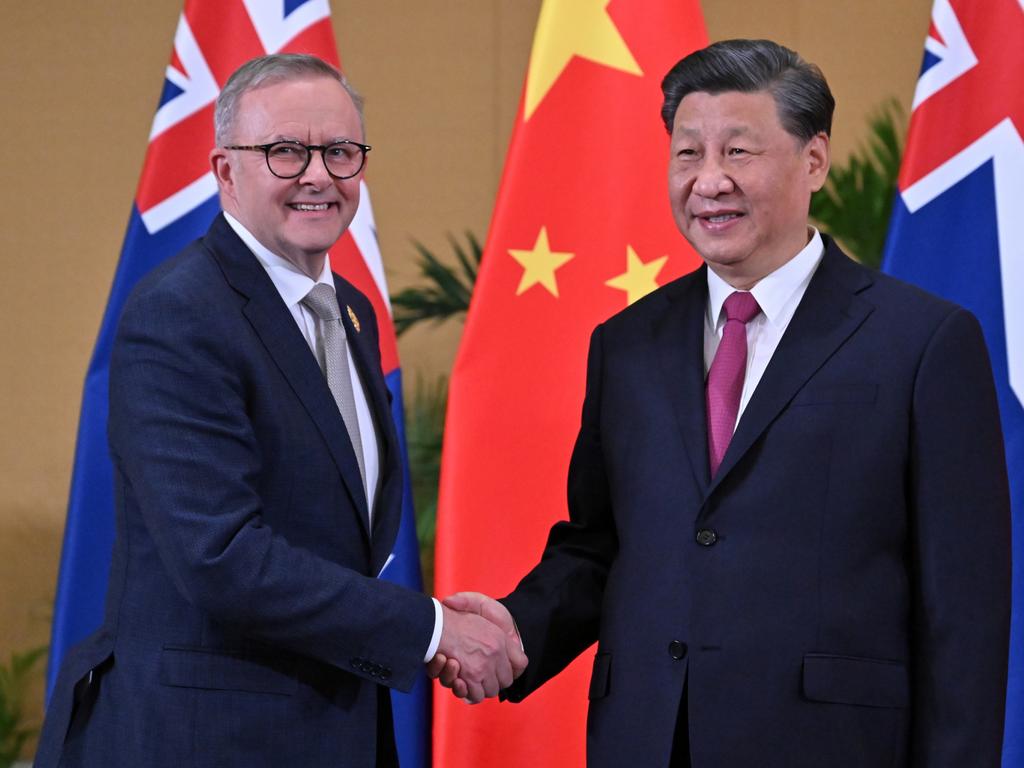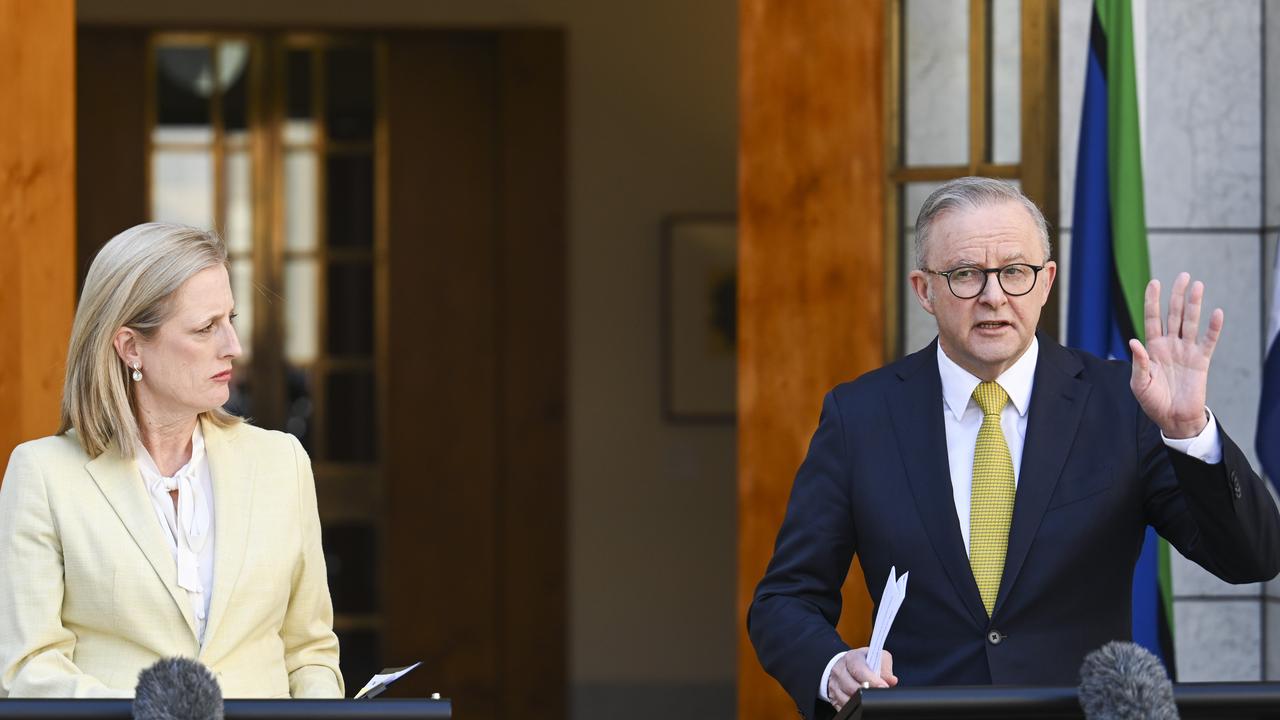Retired admiral sinks Turnbull ‘sovereignty’ fear
Australia’s only admiral to have commanded both nuclear and diesel-electric submarines has dismissed criticism from the former PM.

Peter Clarke, the only Australian admiral to have commanded both a nuclear and a diesel-electric submarine, has dismissed as “complete nonsense” criticism by Malcolm Turnbull that the trilateral AUKUS agreement to obtain a fleet of nuclear submarines would undermine Australian sovereignty.
Retired Rear Admiral Clarke said Australia “cannot do everything ourselves” and the nation had “alliances, agreements and treaties so we get greater benefit from the amalgamation of skills and knowledge and technical ability of our allies”.
He said the AUKUS agreement was aimed at “developing and growing and maintaining” the skills needed to operate and maintain nuclear submarines in Australia.
“It will take a decade to get this sorted out,” he said. “It’s just absolute nonsense to say it would adversely affect Australian sovereignty.”
Mr Turnbull took to Twitter on Monday, saying it was completely overlooked in Australia that “nuclear-powered submarines to be acquired from the US will not be able to be operated or maintained without the supervision of the US Navy”.
The former prime minister added: “AUKUS is a worthwhile and natural enhancement of already intimate security and intelligence relationships but the submarine element of the agreement delays vital capabilities and diminishes Australian sovereignty.”

The debate over AUKUS has been reignited after the heads of the US Senate armed services committee – Democrat Jack Reed and Republican James Inhofe – advised against supplying Australia with off-the-shelf nuclear-powered submarines in a letter to Joe Biden.
They warned that the AUKUS pact risked stretching the nation’s industrial base “to breaking point”.
Anthony Albanese said on Monday he was confident the government could deliver a submarine capability that “serves Australia’s national defence interests” and those of the US and UK.
“That’s what the whole point of the AUKUS arrangement is – to recognise that through co-operation in our defence systems we can … be stronger,” the Prime Minister told the ABC’s 7.30.
Mr Albanese said he wanted nuclear submarines to be manufactured in Australia, providing an assurance that “Australia’s sovereign interest will be protected.”
He also said that senior members of the US administration had been “extremely positive” towards the ambition of the AUKUS framework to deliver a nuclear submarine fleet to Australia and that the proposal enjoyed the support of Joe Biden.
Rear Admiral Clarke said while Mr Turnbull’s comments were “bizarre” and “unhelpful”, the warnings about America’s defence industry being stretched showed Australia’s quest to obtain nuclear-powered submarines was “not going to be easy”.
“Of course it will stretch US industrial capability,” he said.
“That’s why we need to have this agreement and why we need to work together.”
Tom Corben, a research fellow at the US Studies Centre, said Australia did not have the “luxury that a great power like the US has in terms of being able to build, maintain and operate all our military capabilities on our own”.
“When you are talking about Australian sovereignty in terms of its defence capabilities, it’s never going to be absolute,” he said.

But Mr Corben said concerns about AUKUS aired in the letter to Mr Biden would be viewed with interest by the President.
“Biden will be taking very seriously the views of two of the leading national security figures in the US congress when it comes to submarines and what it means for AUKUS,” Mr Corben said.
“People who expected either explicitly or implicitly that the US would simply give us or sell us a submarine off their production lines with their capacity limited … didn’t really appreciate or weren’t aware of the significant strain the US industrial base is under.”
Euan Graham, a senior fellow at the International Institute for Strategic Studies, said arguments that AUKUS would diminish Australia’s sovereignty were like saying the ANZUS treaty was a threat to Australia’s autonomy.
“The price of gaining access to US and UK nuclear propulsion technology means structural reliance on them as long-term suppliers. That comes with the AUKUS arrangement and ANZUS,” he said.
“However, I would not equate that with diminished sovereignty.”







